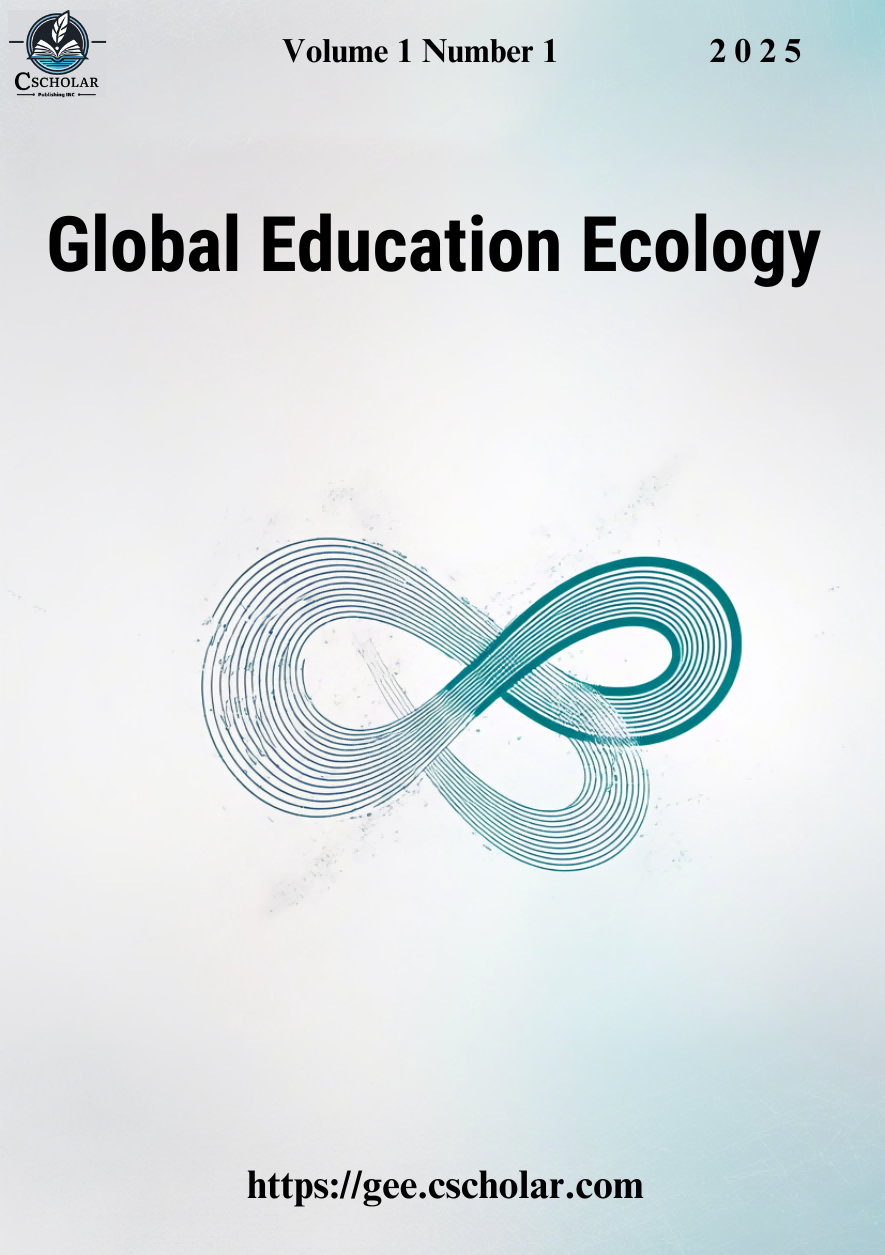Resilience as a Mediating Factor Between Learning Motivation and Efficiency of Secondary Students
DOI:
https://doi.org/10.71204/bb3td682Keywords:
Learning Motivation, Psychological Toughness, Learning Efficiency, Mediating Effect, Middle School StudentsAbstract
This study investigated the mediating role of psychological resilience in the relationship between learning motivation and academic efficiency among 600 Chinese secondary school students (grades 7-11) using structural equation modeling. Results demonstrated that intrinsic motivation significantly enhanced learning efficiency through resilience (β = .32, p < .001), whereas extrinsic motivation indirectly suppressed efficiency via the same pathway (β = –.18, p < .01). These findings extend Self-Determination Theory by identifying resilience as a pivotal mechanism that transforms motivational quality into measurable academic outcomes. Practically, the study underscores the necessity of integrating resilience-building interventions—such as growth-mindset workshops and failure-reframing curricula—into existing motivation-focused pedagogical strategies. Despite its contributions, the cross-sectional design limits causal inferences, and the monocultural sample restricts generalizability. Future research should employ longitudinal designs and cross-cultural comparisons to validate these mechanisms and refine culturally responsive educational practices.
References
Deci, E. L., & Ryan, R. M. (2000). Self-determination theory and the facilitation of intrinsic motivation, social development, and well-being. American Psychologist, 55(1), 68-78.
Deci, E. L., & Ryan, R. M. (2017). Self-determination theory: Basic psychological needs in motivation, development, and wellness. Guilford Press.
Deci, E. L., Olafsen, A. H., & Ryan, R. M. (2017). Self-determination theory in work organizations: The state of a science. Annual Review of Organizational Psychology and Organizational Behavior, 4, 19–43.
Fredrickson, B. L. (2001). The role of positive emotions in positive psychology: The broaden-and-build theory of positive emotions. American Psychologist, 56(3), 218-226.
Hu, L., & Bentler, P. M. (1999). Cutoff criteria for fit indexes in covariance structure analysis: Conventional criteria versus new alternatives. Structural Equation Modeling, 6(1), 1–55.
Kline, R. B. (2016). Principles and practice of structural equation modeling (4th ed.). Guilford Press.
Luthar, S. S., Cicchetti, D., & Becker, B. (2000). The construct of resilience: A critical evaluation and guidelines for future work. Child Development, 71(3), 543-562.
Martin, A. J., & Marsh, H. W. (2006). Academic resilience and its psychological and educational correlates: A construct validity approach. Psychology in the Schools, 43(3), 267-281.
Masten, A. S. (2014). Ordinary magic: Resilience in development. Guilford Press.
Maxwell, S. E., & Cole, D. A. (2007). Bias in cross-sectional analyses of longitudinal mediation. Psychological Methods, 12(1), 23–44.
Pintrich, P. R. (2003). A motivational science perspective on the role of student motivation in learning and teaching contexts. Journal of Educational Psychology, 95(4), 667–686.
Preacher, K. J., & Hayes, A. F. (2008). Asymptotic and resampling strategies for assessing and comparing indirect effects in multiple mediator models. Behavior Research Methods, 40(3), 879–891.
Ryan, R. M., & Deci, E. L. (2017). Self-determination theory: Basic psychological needs in motivation, development, and wellness. Guilford Press.
Vansteenkiste, M., et al. (2020). The role of intrinsic versus extrinsic motivation in predicting academic outcomes: A meta-analysis. Psychological Bulletin, 146(10), 876-908.
Vansteenkiste, M., Sierens, E., Soenens, B., Luyckx, K., & Lens, W. (2020). Motivational profiles from a self-determination perspective: The quality of motivation matters. Journal of Educational Psychology, 95(3), 584–604.
Yu, X., & Zhang, J. (2007). Factor analysis and psychometric evaluation of the Connor-Davidson Resilience Scale (CD-RISC) with Chinese people. Social Behavior and Personality, 35(1), 19–30.
Zhang, L., et al. (2021). Growth mindset intervention improves resilience and math achievement in Chinese middle schools. Journal of Educational Psychology, 113(4), 789-805.
Zimmerman, B. J., & Kitsantas, A. (2005). The hidden dimension of personal competence: Self-regulated learning and practice. In A. J. Elliot & C. S. Dweck (Eds.), Handbook of competence and motivation (pp. 509-526). Guilford Press.
Downloads
Published
Issue
Section
License
Copyright (c) 2025 Yiyin Liang (Author)

This work is licensed under a Creative Commons Attribution 4.0 International License.
All articles published in this journal are licensed under the Creative Commons Attribution 4.0 International License (CC BY 4.0). This license permits unrestricted use, distribution, and reproduction in any medium, provided the original author(s) and source are properly credited. Authors retain copyright of their work, and readers are free to copy, share, adapt, and build upon the material for any purpose, including commercial use, as long as appropriate attribution is given.




